The Alliance of Downtown Civic Organizations has released a follow-up report in conjunction with their strong endorsement of Mayor Walsh’s amended ordinance on short-term rentals.
The ADCO study shows that AirBnB is growing rapidly in Boston, with more than 200 new units listed per month. The city also has one of the highest concentrations of investor-units – three to four times the amount of other cities.
The new ordinance would ban short-term rentals like AirBnB in non-owner occupied buildings, and limit the number of days owners living in multi-unit buildings can rent units as short-term rentals to 120 days per year.
While Boston City Council has yet to reach an agreement, the ADCO fully endorses the amended ordinance. The Organization urges Boston to take action now, as ADCO Vice-Chairman Stephen Fox says, “Every day of delay and any loosening of investor or property-related restrictions will be costly to Boston.”
Additional findings from the ADCO research include:
• Banning investor units will return 1,800 – 2,000 units to Boston’s housing supply.
• 62% of Boston AirBnB listings are for entire homes/apartments, 85% in the downtown/ADCO neighborhoods – 60%-70% of these are investor units.
• Cities like Portland, San Francisco, Los Angeles, Nashville and Berlin, all with lower investor ownership than Boston, have already banned investor units entirely.
• Owner-adjacent units, if capped at 120 days, will likely add only about 400 units to the short-term rental count. If not capped, this number could exceed 2,000 units.
See the ADCO’s full presentation, “Why ADCO Supports Mayor Walsh’s Revised Short-Term Rental Ordinance” posted below. (Click on the slides to enlarge.)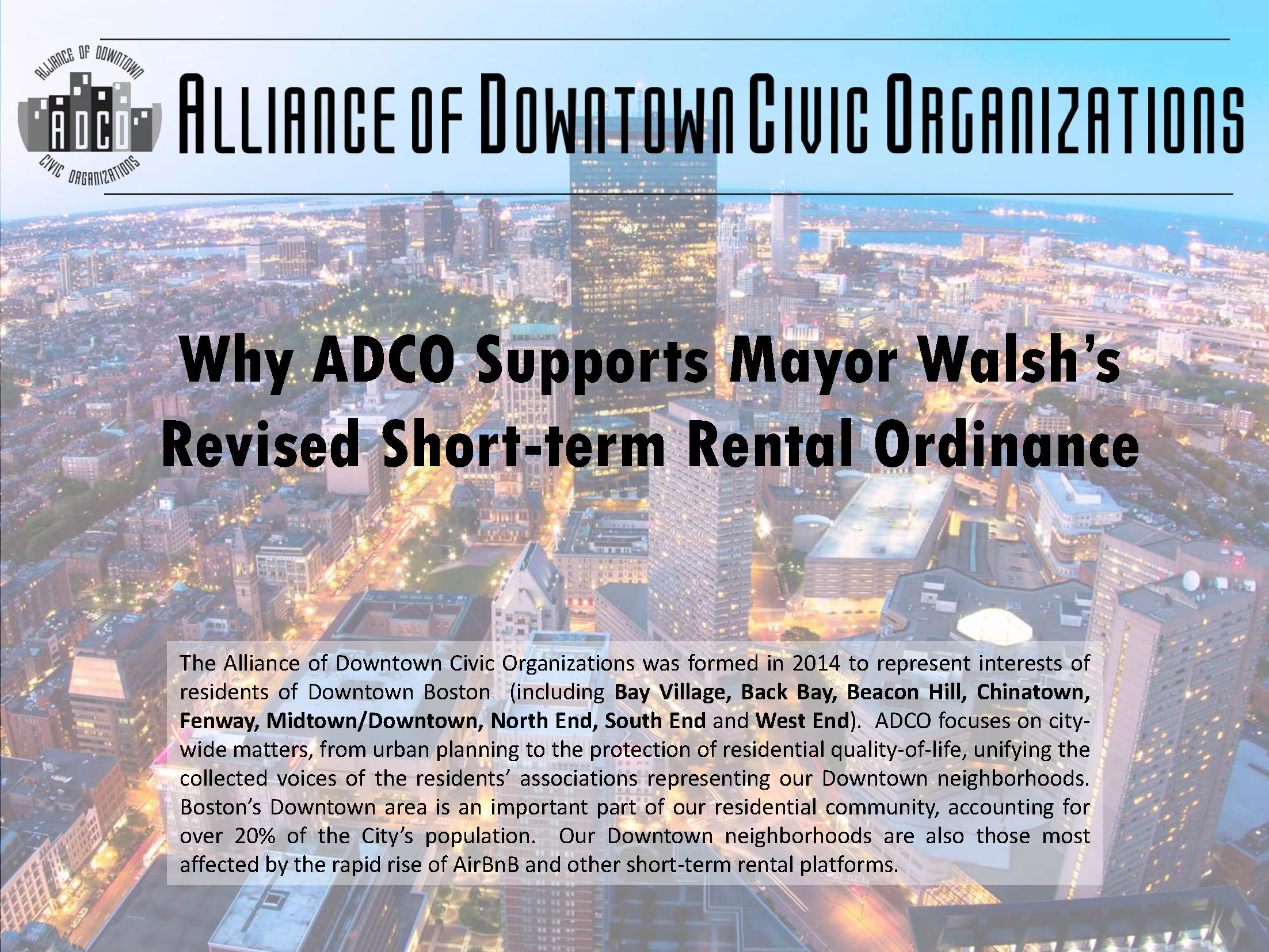
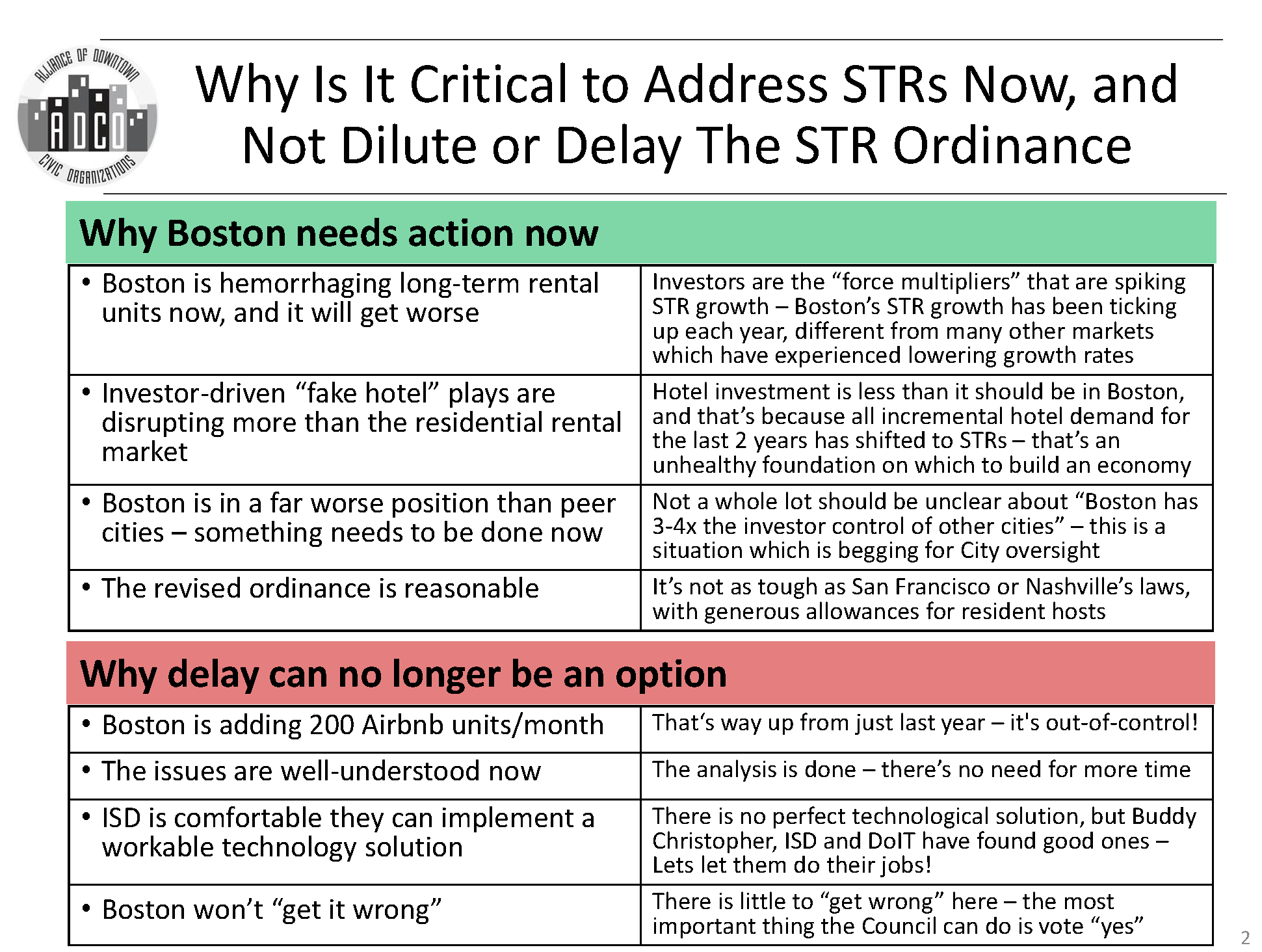
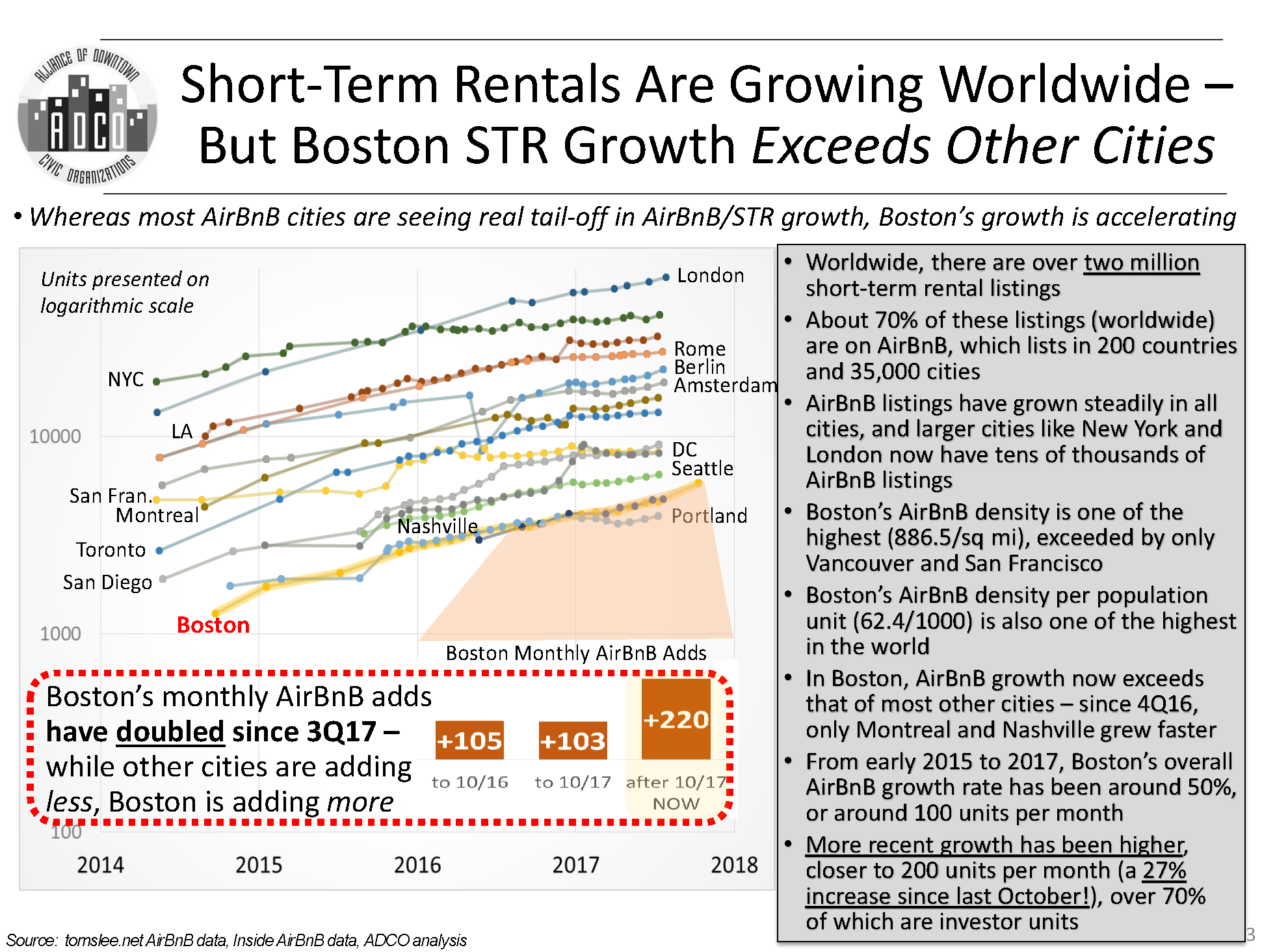
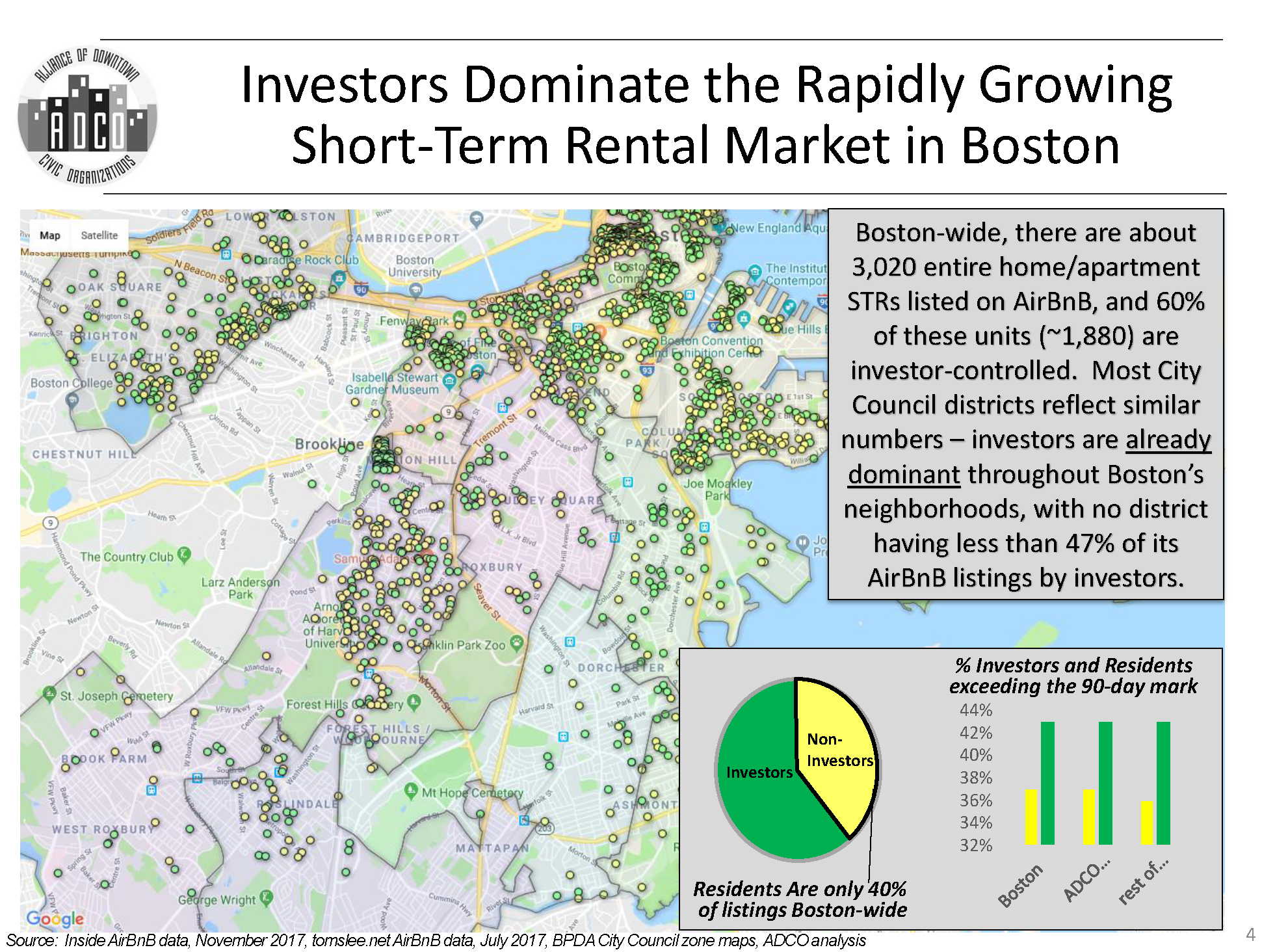
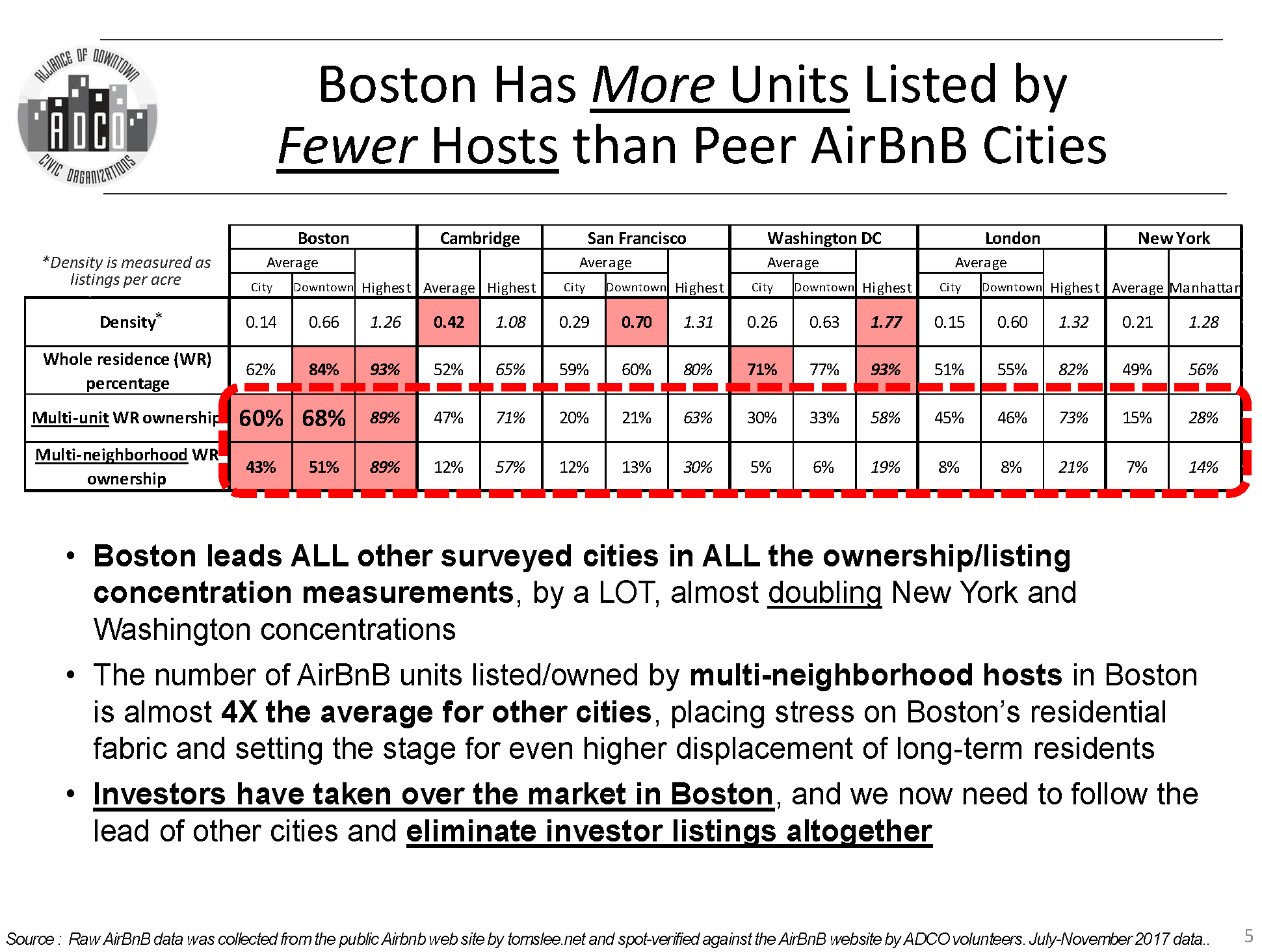
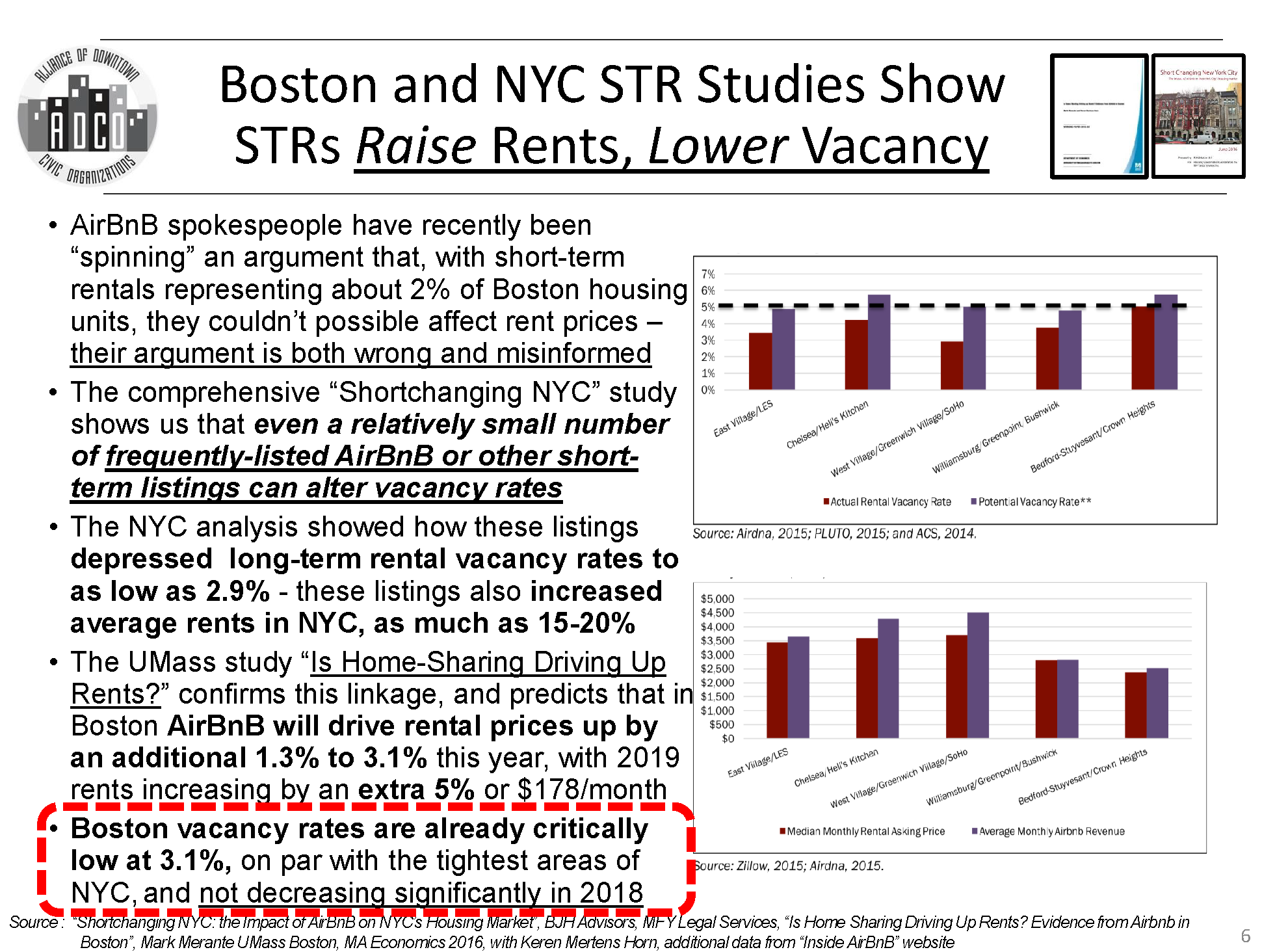
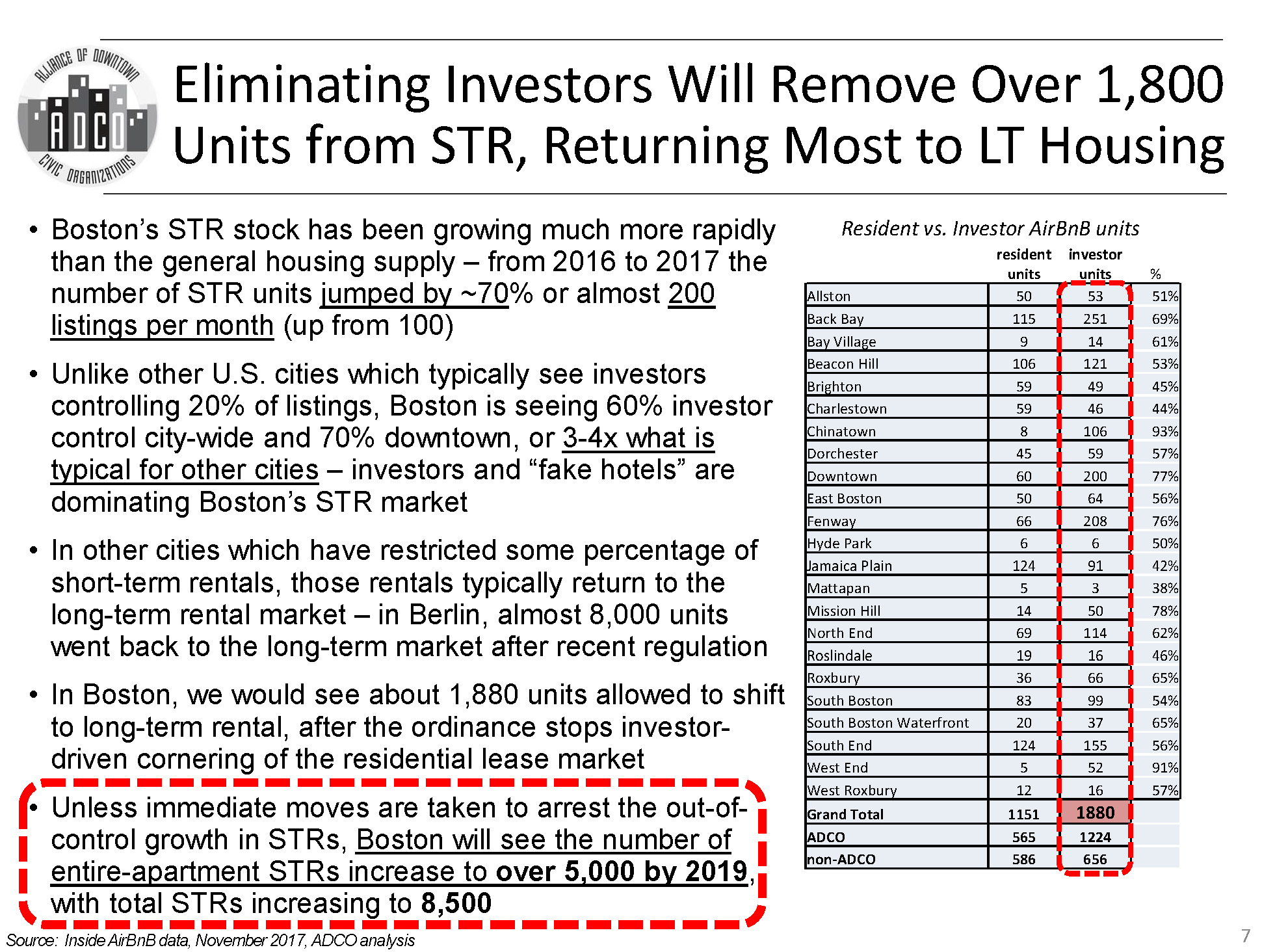
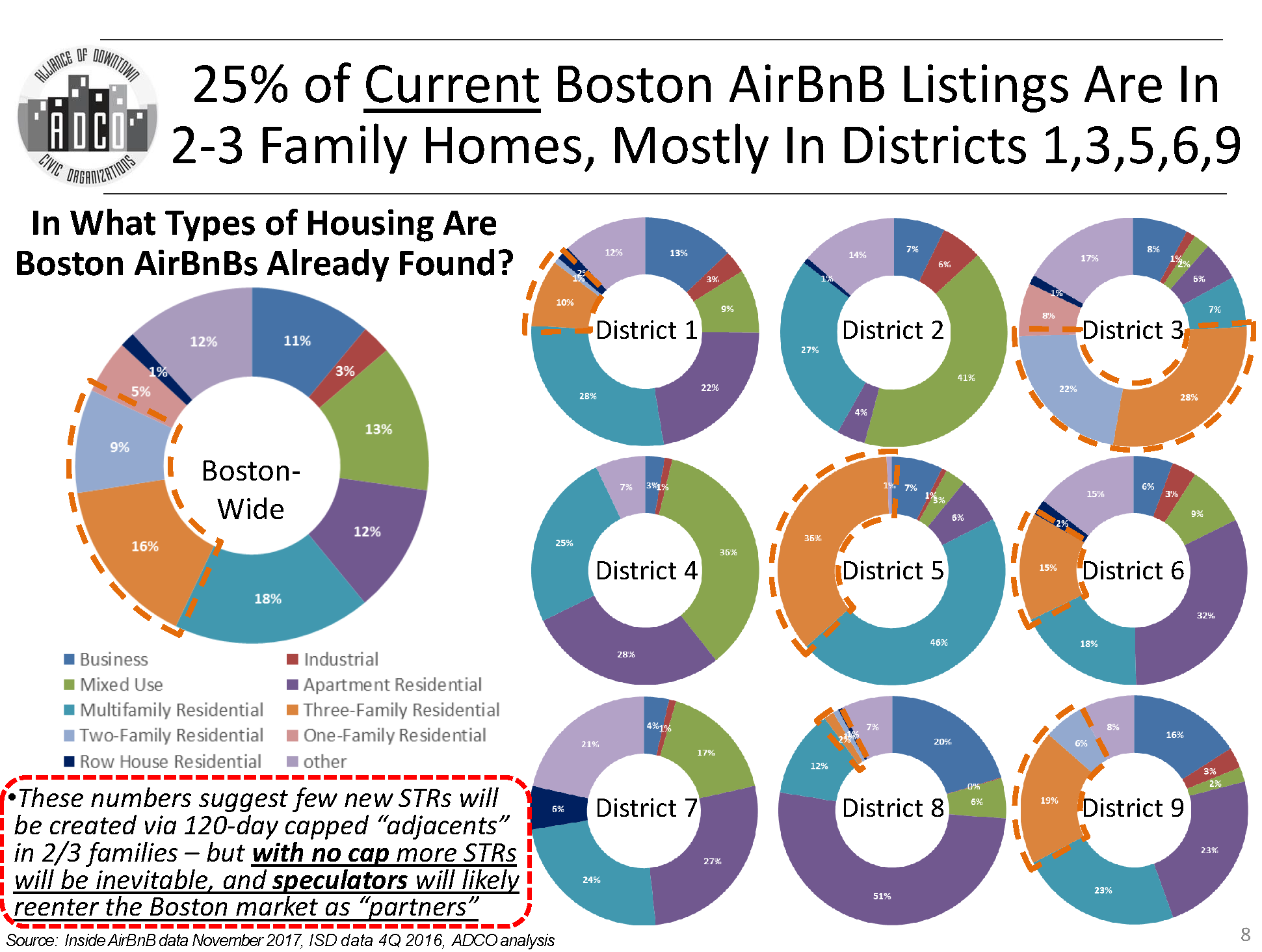

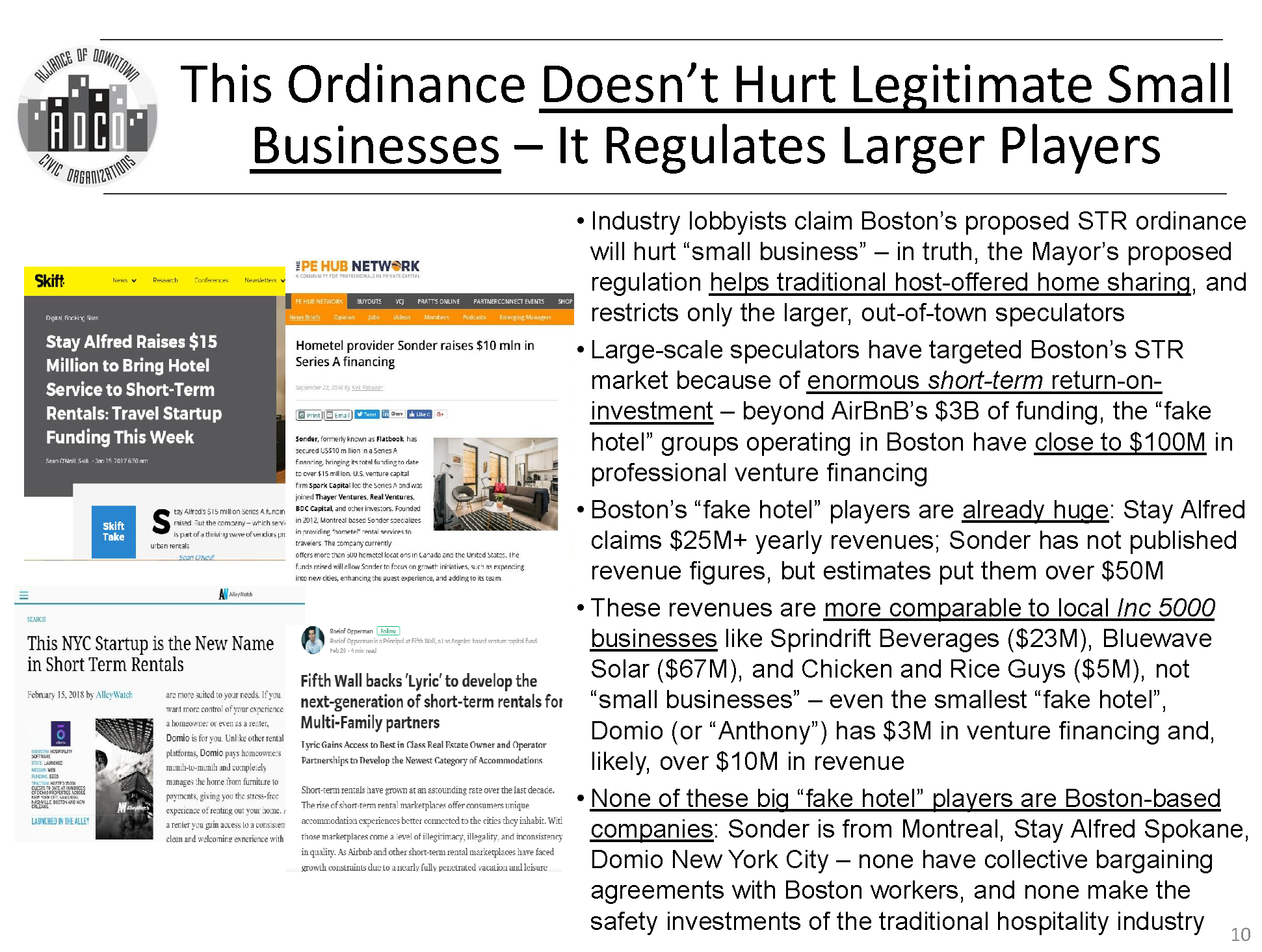
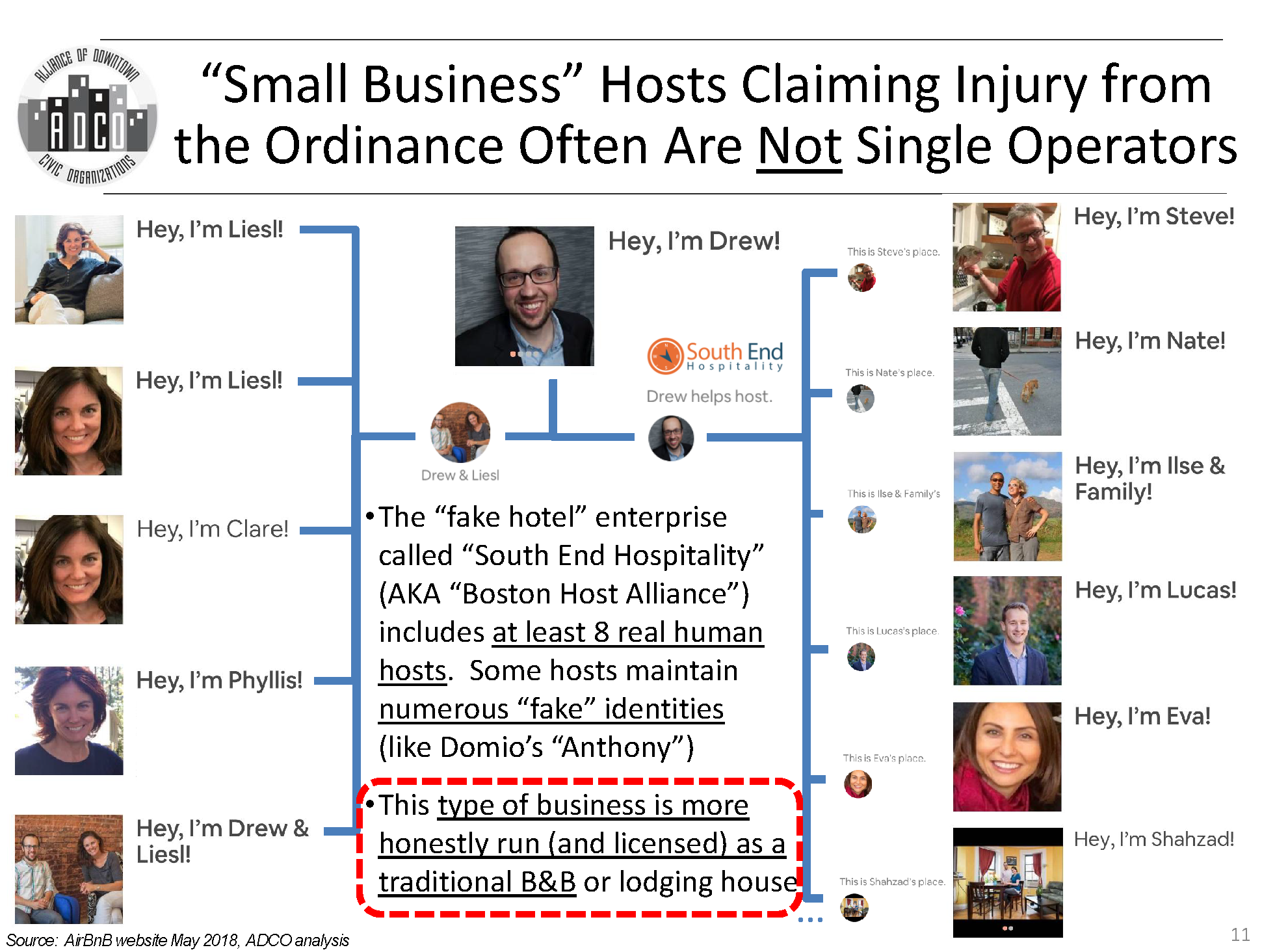

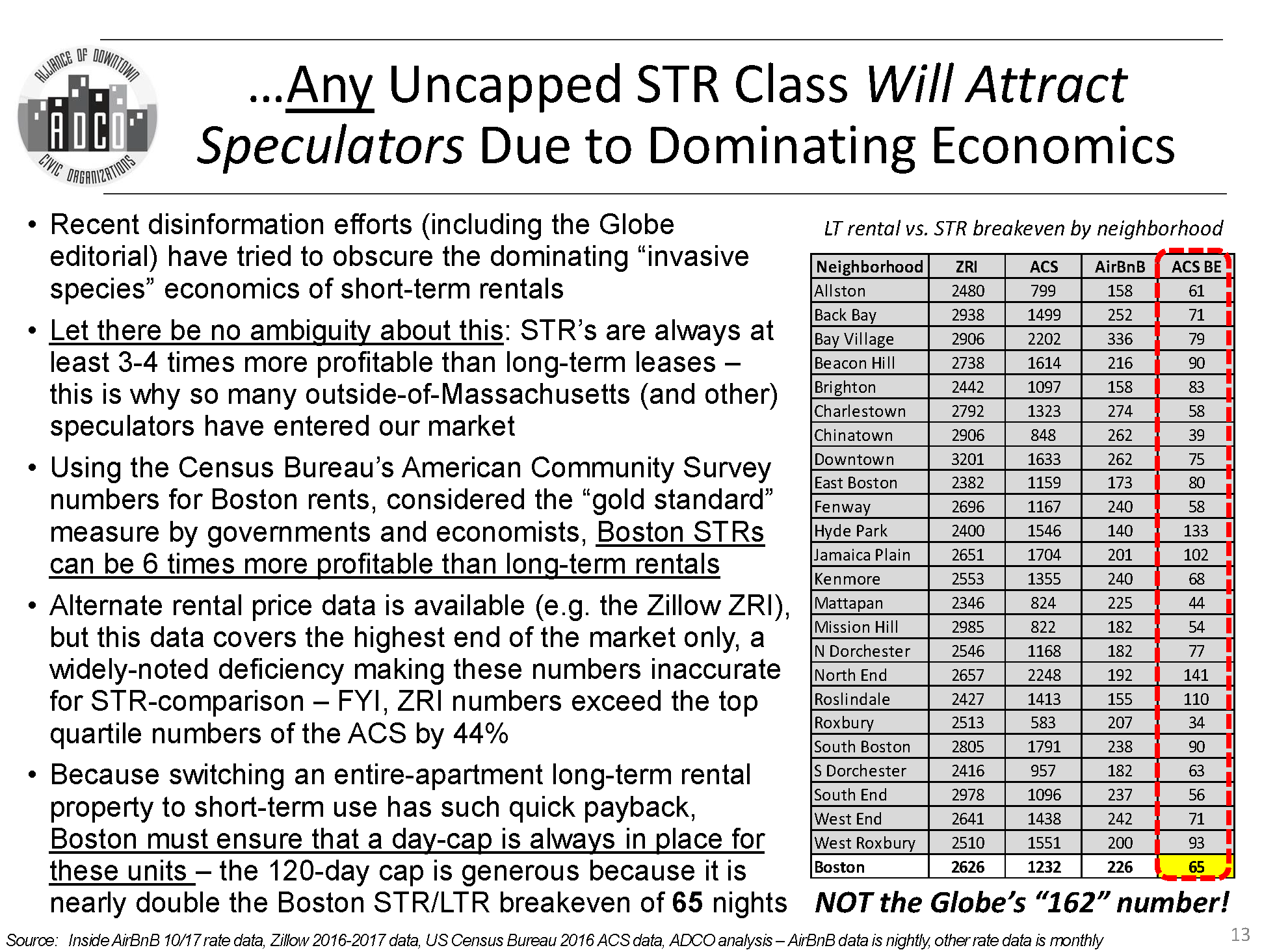
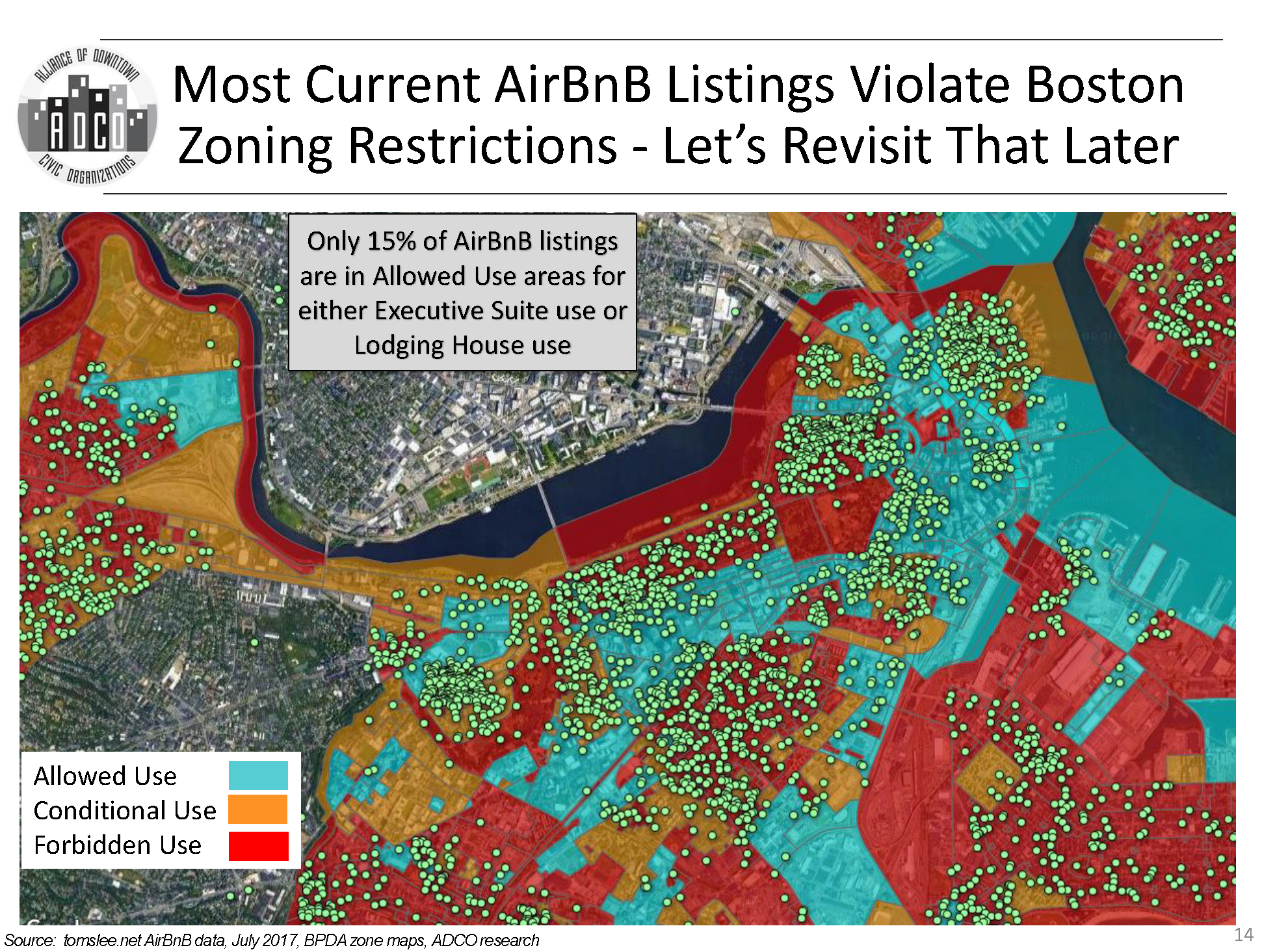
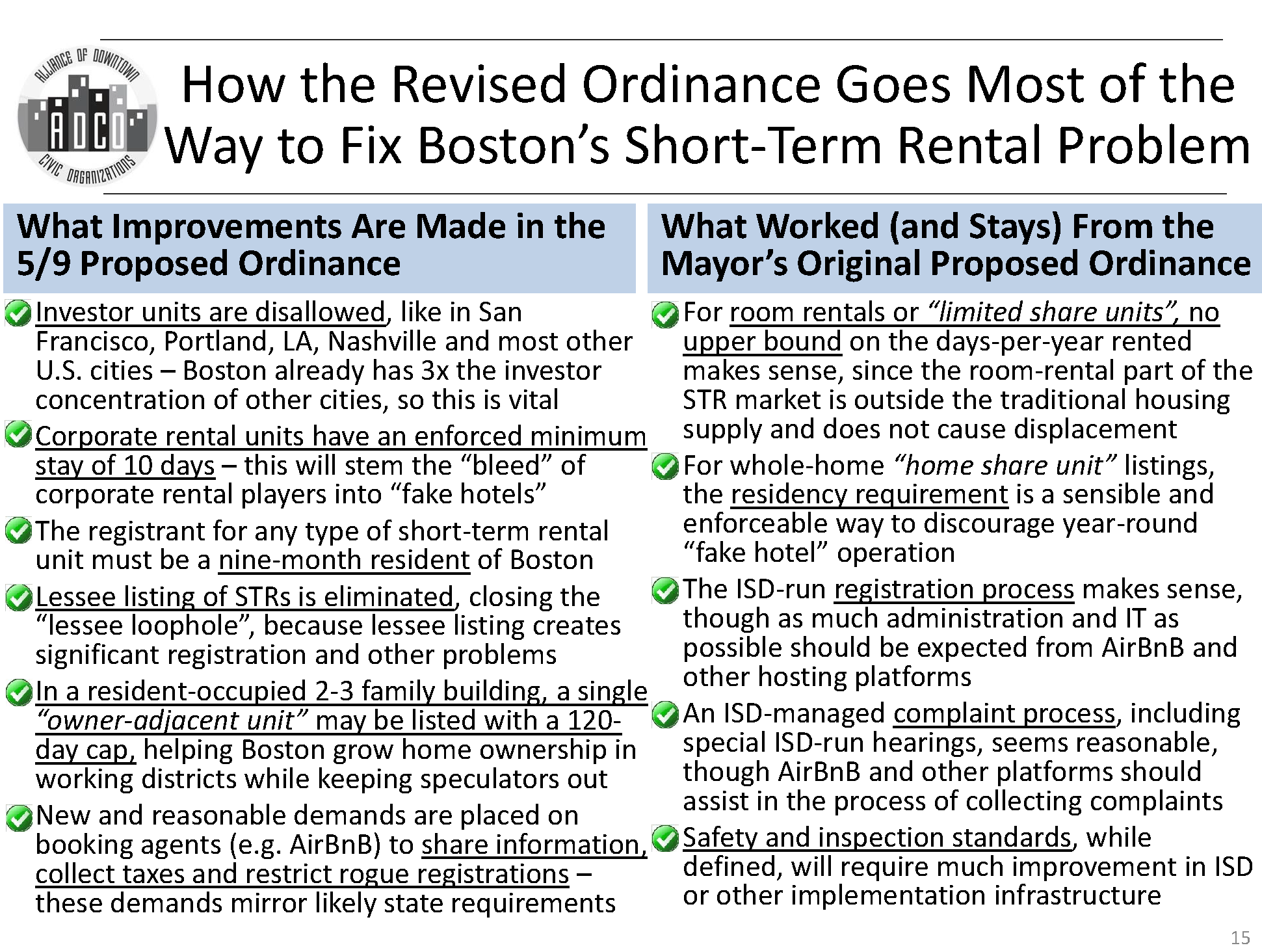
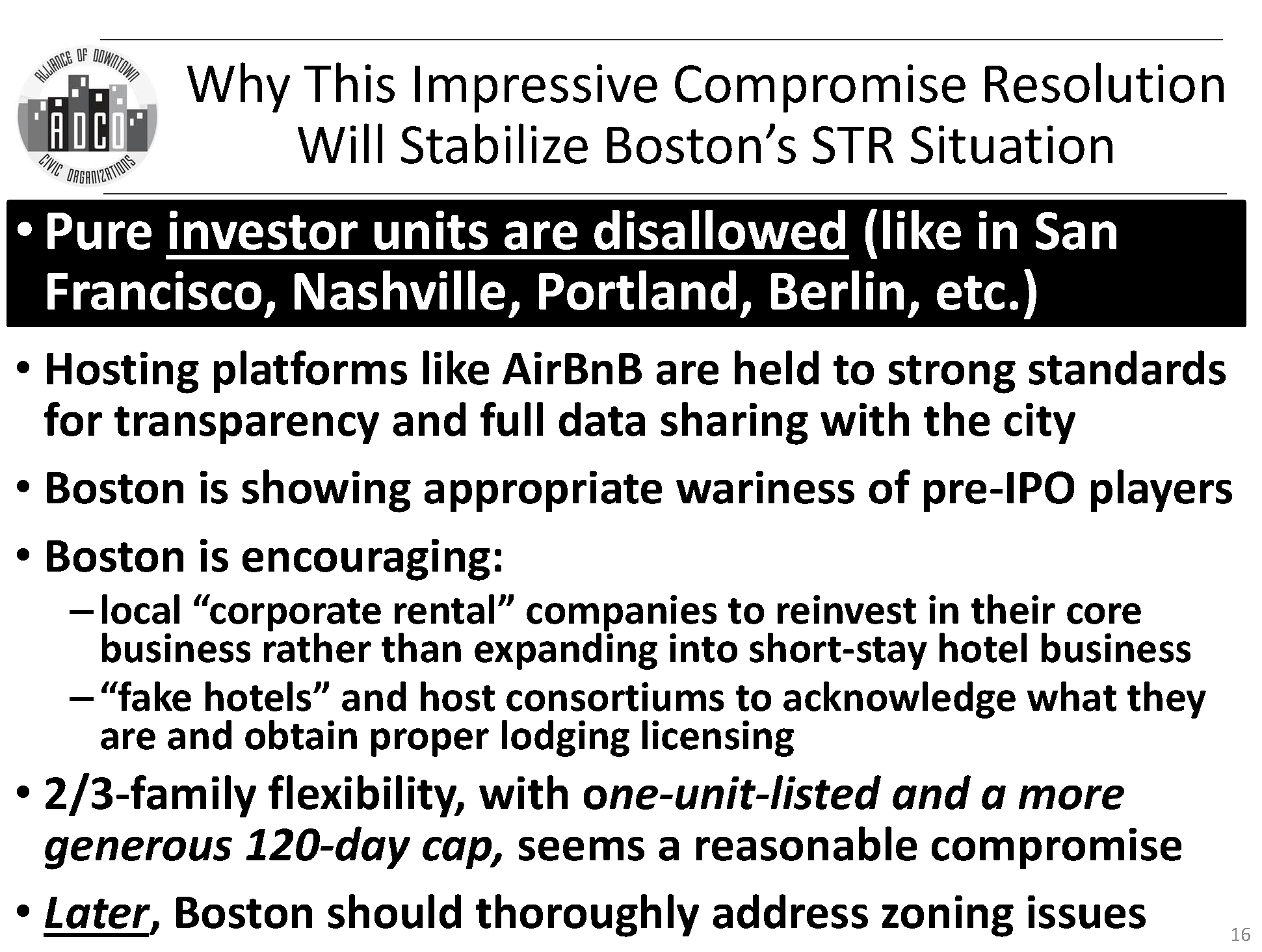
See more NorthEndWaterfront.com coverage by searching the tag short term rentals.

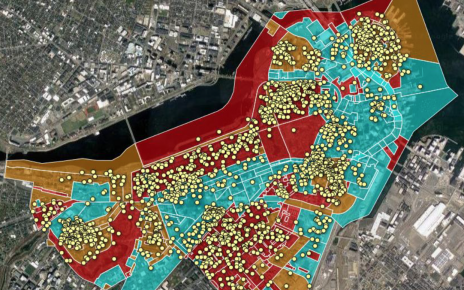


I think it was a Great Idea that the Mayor said Airbnbs can only be Landlord
Occupied Buildings
Agree. Anything else is basically an unregulated hotel.
The information is not factual. Nashville DOES allow short-term rentals. They do tax, issue permits, inspect and regulate, which is not a problem. Perhaps the solution in Boston is to tax and regulate, using the tax money to provide affordable housing.